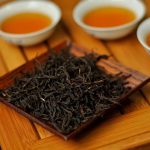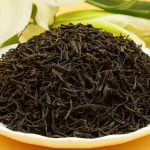Exploring the Richness of Kenyan Black Tea: A Journey into Flavor and Culture

Kenyan black tea holds a prominent position in the world of tea, renowned for its bold flavor, exquisite aroma, and cultural significance. This article aims to delve into the origins, production process, unique characteristics, health benefits, culinary uses, economic impact, sustainability, and future prospects of Kenyan black tea.
I. The Origin and Production Process of Kenyan Black Tea
Kenya boasts a rich history of tea cultivation, influenced by the British colonization era. The country’s favorable geographical conditions, including high altitudes and diverse soil types, contribute to the superior quality of Kenyan tea. The cultivation and harvesting techniques, coupled with meticulous processing methods involving withering, rolling, oxidation, and drying, ensure the tea’s distinct flavor and appearance.
II. Unique Characteristics of Kenyan Black Tea
Kenyan black tea is renowned for its robust, full-bodied taste, offering a delightful combination of malty and earthy notes. Accompanied by fruity and floral undertones, this tea delivers a sensory experience like no other. Its dark, rich color and uniform tea leaves further exemplify its exceptional quality.
III. Health Benefits of Consuming Kenyan Black Tea
Beyond its exquisite taste, Kenyan black tea offers numerous health benefits. With a high antioxidant content, it aids in combating free radicals and promoting overall wellness. Research suggests potential positive effects on cardiovascular health, immune system boost, digestion improvement, and other areas of well-being.
IV. Culinary Uses and Cultural Significance of Kenyan Black Tea
In Kenyan culture, black tea plays a central role in traditional preparation methods and social gatherings. From the famous “chai” enjoyed on street corners to elaborate tea ceremonies, the cultural significance of Kenyan tea is deeply rooted. Furthermore, this tea inspires culinary creativity, finding its way into delightful recipes ranging from refreshing iced teas to delectable tea-infused desserts.
V. Kenyan Black Tea and Economic Impact
The tea industry in Kenya plays a pivotal role in the country’s economy. The cultivation, processing, and export of black tea provide employment opportunities for local communities, contributing to socioeconomic development. Additionally, Kenyan black tea holds a prominent place in the international market, enhancing the nation’s trade prospects.
VI. Sustainability and Challenges in Kenyan Black Tea Industry
With a growing focus on sustainability, the Kenyan tea industry faces environmental concerns. Adapting sustainable farming practices, such as organic cultivation and responsible water usage, is crucial. Fair trade initiatives also contribute to the social responsibility associated with the tea industry, ensuring better livelihoods for tea workers.
VII. Future Trends and Opportunities in Kenyan Black Tea
The future of Kenyan black tea looks promising, with opportunities for innovation and growth. Constant research and development in tea processing techniques, along with exploring specialty tea markets, pave the way for new experiences and consumer preferences. The rising demand for organic and ethically sourced teas aligns well with Kenya’s potential to capture evolving tea trends.
Conclusion
Kenyan black tea captivates tea enthusiasts worldwide with its exceptional flavor, cultural significance, and positive impact on health and communities. As you embark on your journey into the world of tea, be sure to explore the richness of Kenyan black tea, appreciating its unique characteristics and embracing its diverse culinary and cultural traditions.
















